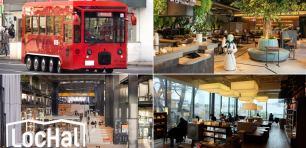
Kumano Kodo trail in Japan. Source: Unsplash/Kieran Taylor
On days when I’ve literally disappeared under a pile of administration (today actually), I dream of hiking Japan’s 1000-year-old Unesco heritage-listed Kumano Kodo trail. Not just on days when I am doing admin, to be honest. But it takes around nine days. Many Japanese don’t take enough annual leave to do the trek. To try and combat this issue, in 2019 the government introduced a law that sees employers face penalties if their employees don’t take a minimum of five days of leave a year.
And while many countries don’t face issues with overwork to the extreme that Japan does, it’s still a significant problem. There is a lot of discussion at the moment about leave of all types. Sick leave. Annual leave. Life leave.
Companies like Netflix, Cliniko, and Goldman Sachs are offering unlimited annual leave. However, when workplaces are understaffed and many employees are taking not much more than half their existing annual leave allocation, such initiatives are likely to be seen as gimmicks. A distraction to temporarily relieve the pain or frustration of the underlying problem.
In Gallup’s State of the Global Workplace 2023 Report, the US and Canada region along with East Asia tied for the highest level of stress at 52%, and Australia and New Zealand had the second-highest rate at 47%. These results maintain the record high set in 2021.
Increasing awareness of the prevalence of stress, mental health, and wellbeing is essential and positive. As is the awareness that employees need access to leave for things other than when they are sick, on holiday, or having a baby. But if employees need a day off a month to recover from their jobs, a much bigger problem continues to be ignored.
However, there is a more fundamental issue not being addressed. An analysis of 382,000 employee exit interviews found that reports of employee burnout have almost doubled in the past year. It isn’t surprising then that the rise of the anti-work movement is one of the most popular articles on BBC Worklife. Despite the economic stress and uncertainty, there is a growing sentiment that no job is better than a bad job.
Increasing the amount and types of leave available to employees won’t help issues of overwork, toxic cultures, or incompetent leadership. People aspire to find work that provides meaning and fulfillment. As Adam Grant says, no one grows up dreaming of a job that doesn’t interfere with their life.
The comment I hear most often in companies is “I don’t feel valued” and “I don’t feel heard”. Unlimited leave of any type is not going to make this better.
Let’s continue to offer an increasing range of options for, and access to, leave. Let’s also start more conversations about getting to the real issues around how we are working and living.
There are a number of large studies being conducted in several countries at the moment on a trial of a four-day work week. Many participating companies have indicated they won’t return to a five-day week and the trials continue to show promising results. While this is an important development, the model of 100:80:100 (100% of pay, 80% of hours, 100% of productivity) has been predicted to mean that workers would need to become 25% more productive per day. Stories have also appeared in the media of employees being shamed for undertaking fun activities on the extra day they gain in the four-day model.
If we are more focussed on tasks (or dare I say it face-time) rather than results, if we have cultures where building empires of endless process re-engineering and unnecessary report writing is rewarded, if we tolerate understaffing or endlessly stretching the psychological contract as a way of being, we are missing the point. It’s no wonder employees are stressed, burnt out, and disillusioned.
Joy is a precious resource. So is creativity and inspiration. When I ask employees what they are passionate about, or when was the last time they did something that left them feeling joy, most often the resounding response is silence. This silence is usually broken after a few moments of reflection by an assertion that they don’t remember the last time they had time to think about what they felt passionate about. Or what brought them joy.
Now seems as important a time as ever to actually do something differently. To stop applying bandaids or inventing distractions that don’t help the actual problem. To interrupt the rise of people living lives of quiet desperation.
Handpicked for you

Four-day or four-hour work week? Rethinking what we really want from our jobs



COMMENTS
SmartCompany is committed to hosting lively discussions. Help us keep the conversation useful, interesting and welcoming. We aim to publish comments quickly in the interest of promoting robust conversation, but we’re a small team and we deploy filters to protect against legal risk. Occasionally your comment may be held up while it is being reviewed, but we’re working as fast as we can to keep the conversation rolling.
The SmartCompany comment section is members-only content. Please subscribe to leave a comment.
The SmartCompany comment section is members-only content. Please login to leave a comment.